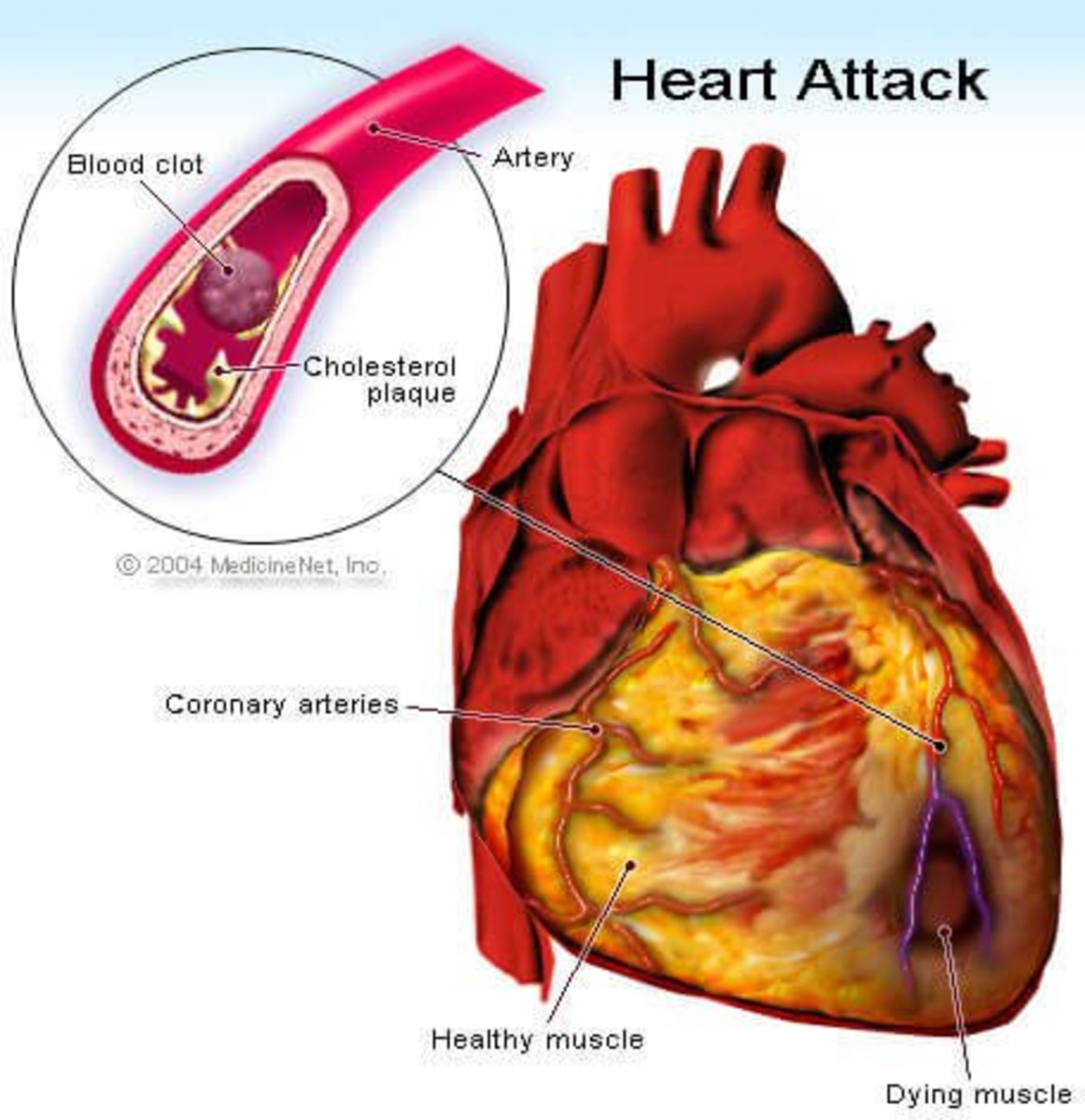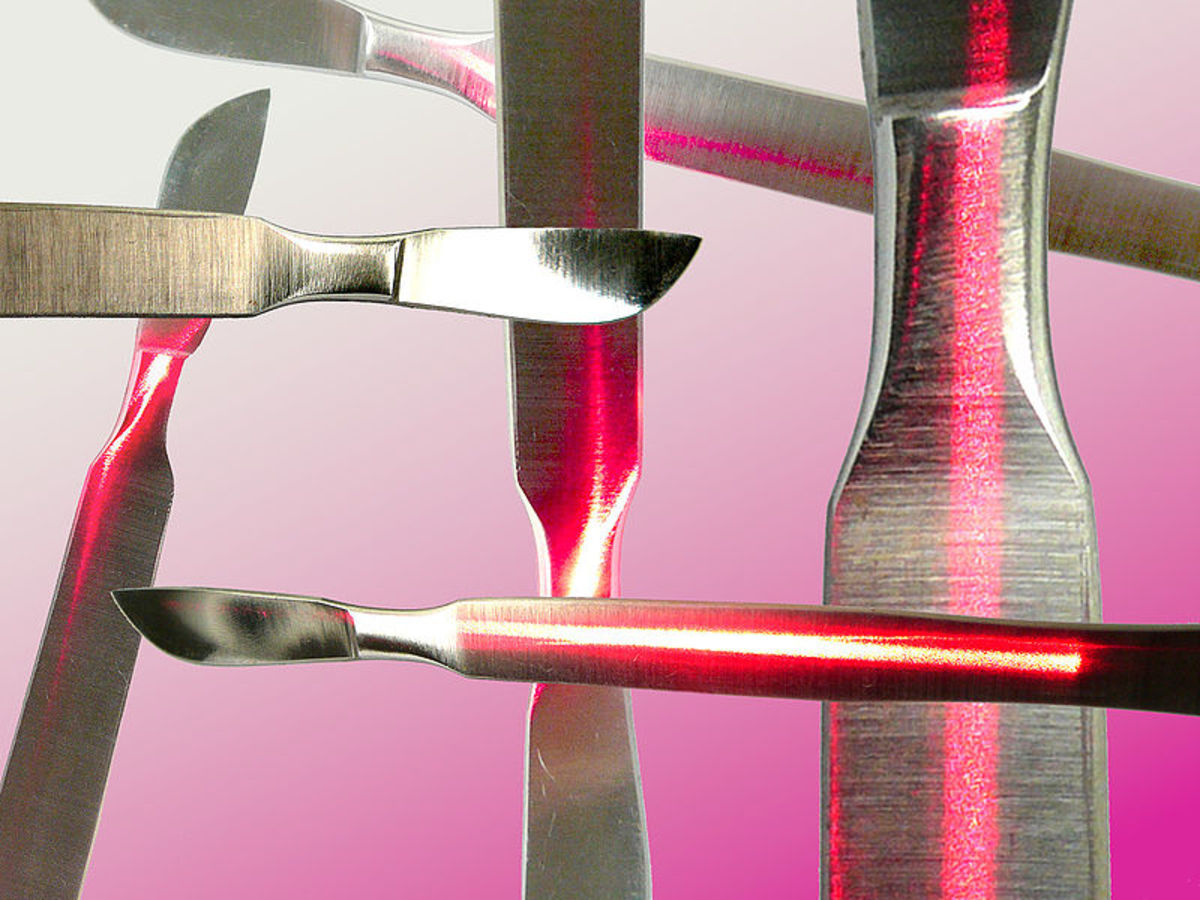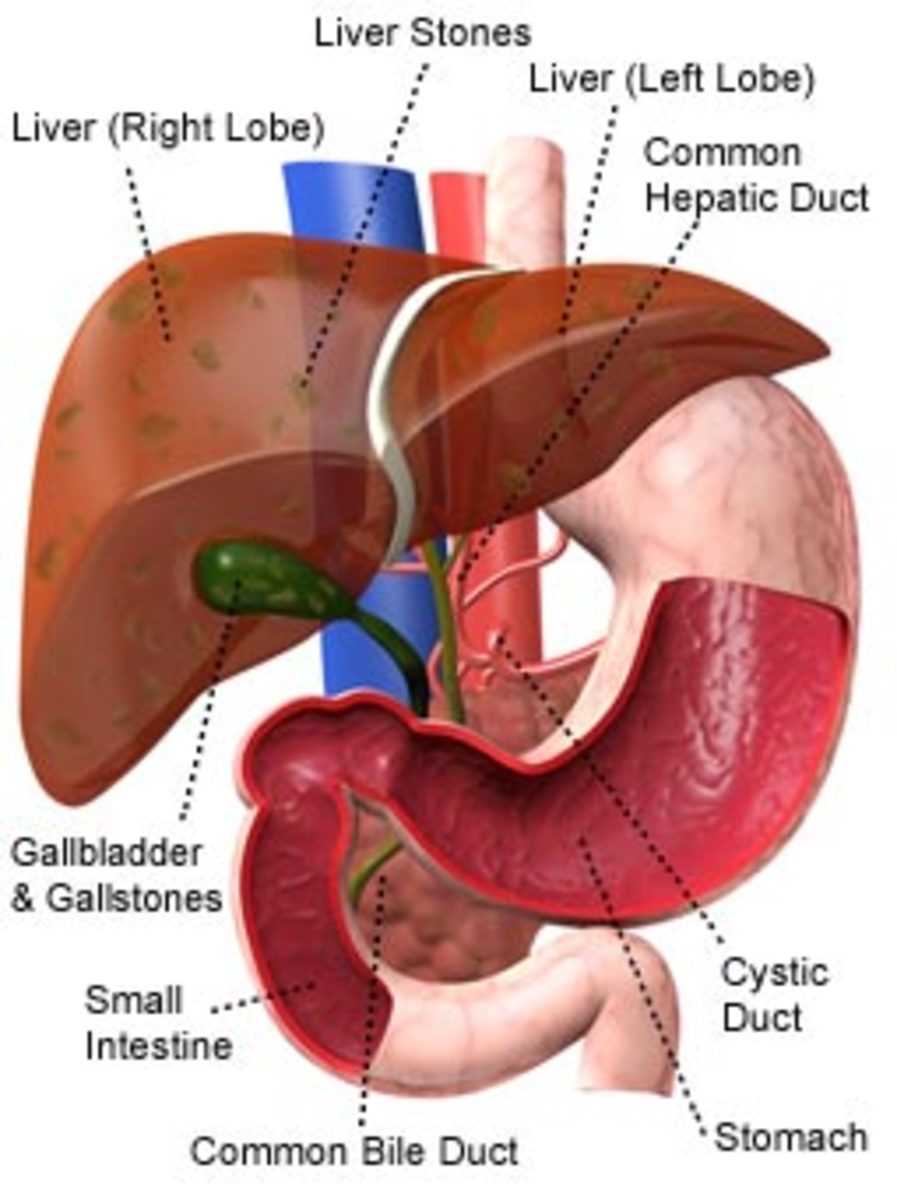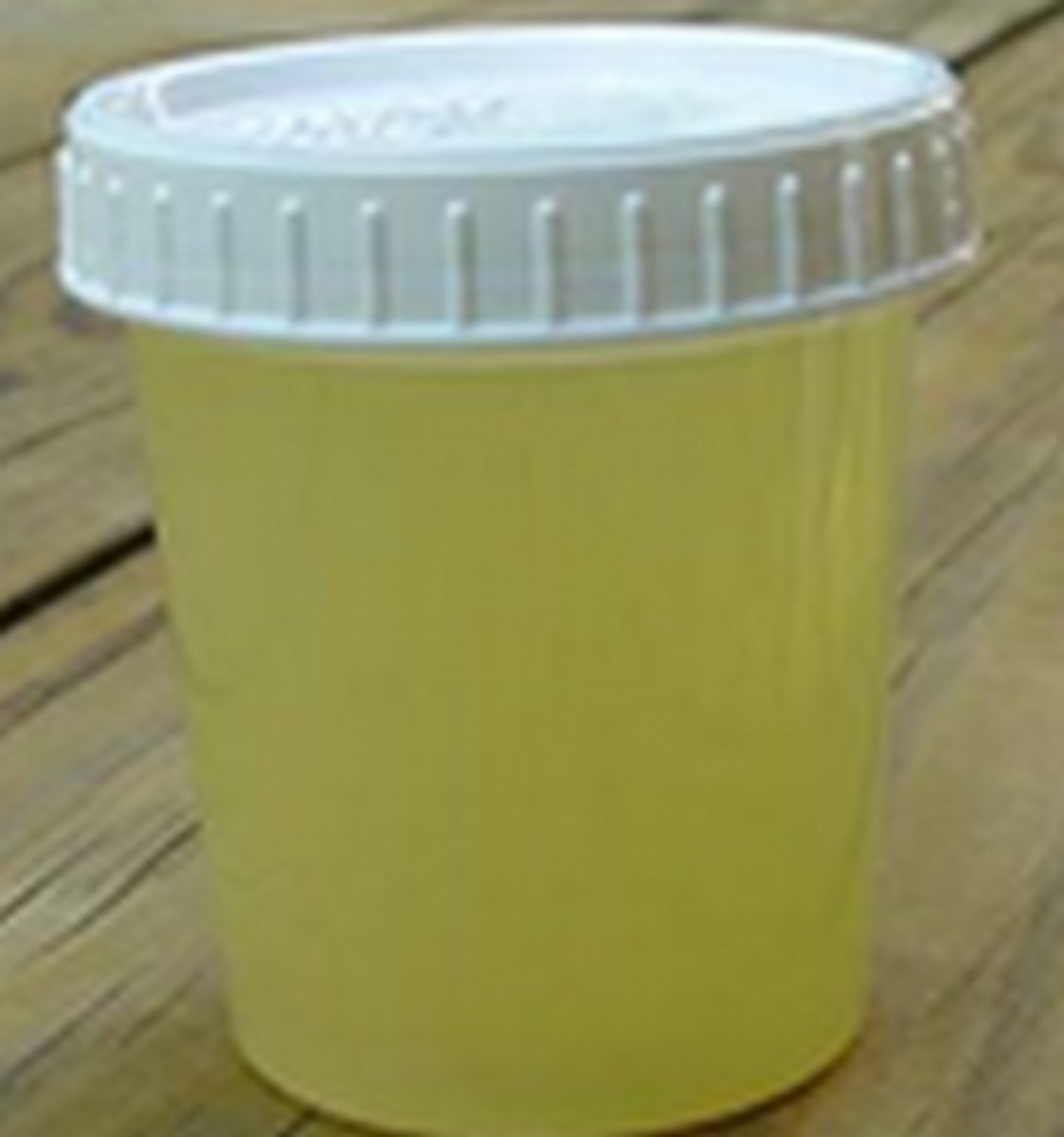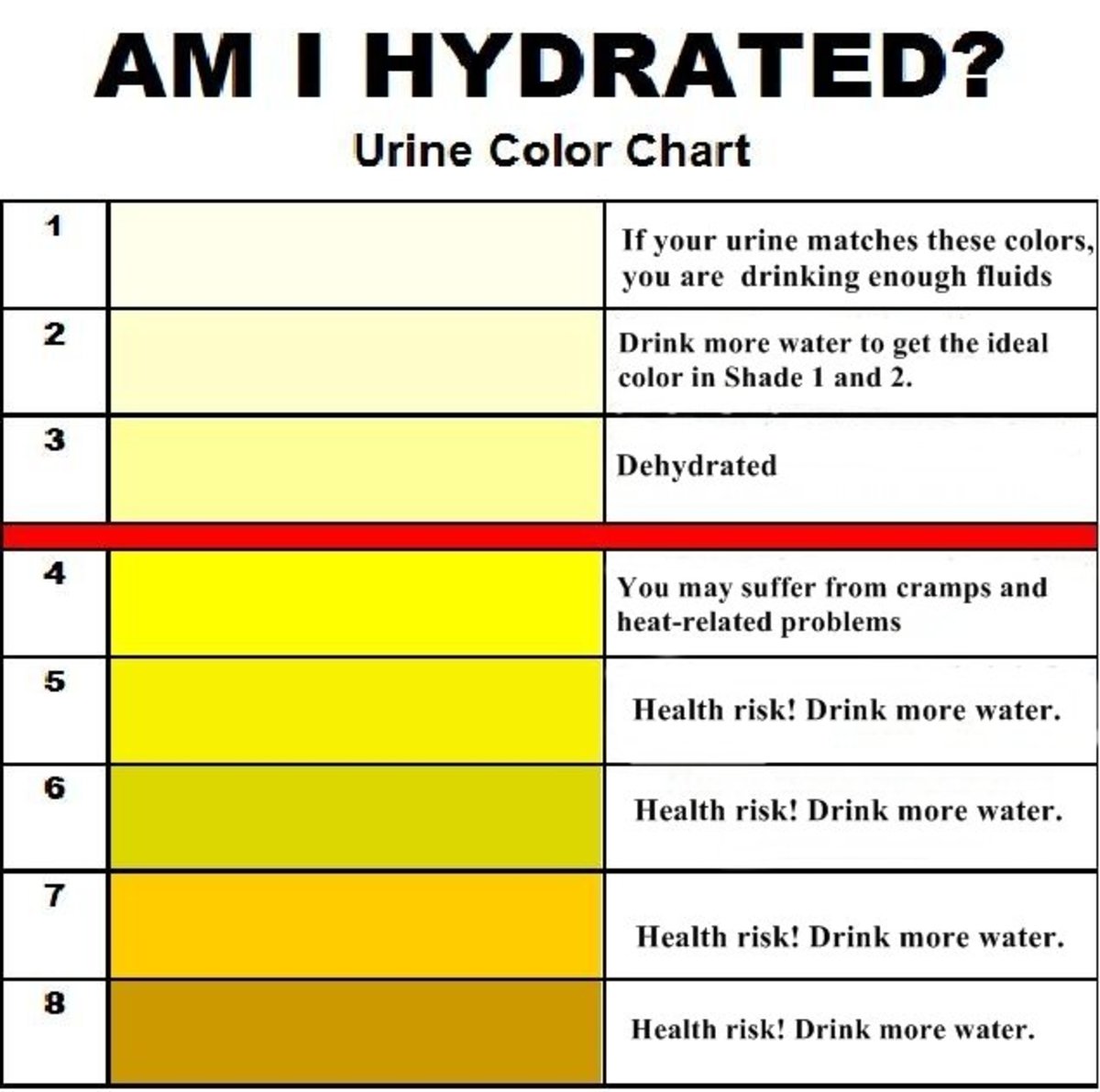Organ Donation And Renal Transplantation

Renal Transplants
In terms of organ transplants, kidney transplants are one of the most common these days and the most successful.
This author has personal experience with renal transplantation as my husband's brother-in-law received a donor-related kidney transplant about 20 years ago. He was suffering from end-stage renal disease and was on hemodialysis three times per week. I remember him saying that he felt he was already dead because the disease made him feel that ill.
His son donated a kidney to him and lo and behold, he was literally "born again." He lived a rich and full life and made it to age 68, which he never would have without the organ transplant. However, as happens so often with organ transplants, they are a life-saving proposition and in many cases, not a long-time cure--at least not yet.
Due to the amount of anti-rejection medications that have to be taken, there is an inherent risk of developing cancer and/or other systemic diseases that can kill you. I can still remember the handfuls of medication that had to be taken on a daily basis and our fears eventually did come true as Irv succumbed not to kidney disease or diabetes (which he had had for years) but rather to Merkle cell cancer - a skin malignancy that definitely was made more aggressive by the medications he had to take for his transplant.
Would Irv have changed one minute of his life post-transplant? Not on your life - excuse the pun. He got to see his grandchildren and experience life anew with his transplanted kidney giving him indeed a second lease on life.
It is my hope that in the future, treatments like Immunomodulatory Minimization Protocol will be used with organ transplants. This is a fairly innovative protocol being utilized at Johns Hopkins in transplantation of upper extremities. The recipient of the grafted organs receives infused bone marrow from the same donor, thus reducing the chances of tissue rejection. It takes anti-rejection therapy administration from a triple drug regimen to a single drug dosing schedule and the drug is not one of the ones that has so many side effects like making cancers more aggressive and harder to treat.

Factors Weighed for Transplantation
When anyone is considered for an organ transplant, there are other factors that must be taken into consideration such as:
- overall general health of the patient
- coexistent medical conditions and prognosis for survival - if the person will not live more than 5 years, chances are transplantation will not be an option
- type of donor and availability
- health of donor if one is available
- ability to comply with treatment after transplant
There may be a considerable wait for some transplant organs. Live donor transplants are a good option and have lessened the wait time for many people.

Criteria for Making it to the Transplant List
Most prominent considerations are:
- preferred age is 65 or younger with a life expectancy of at least 5 years
- absence of chronic infection
- cancer free for at least 5 years (exception - skin cancers)
- willingness to take anti-rejection medications for the rest of your life
- social support system and appropriate psychological profile
- availability of cadaveric versus living donor transplant kidney
- necessity of followup medically lifelong

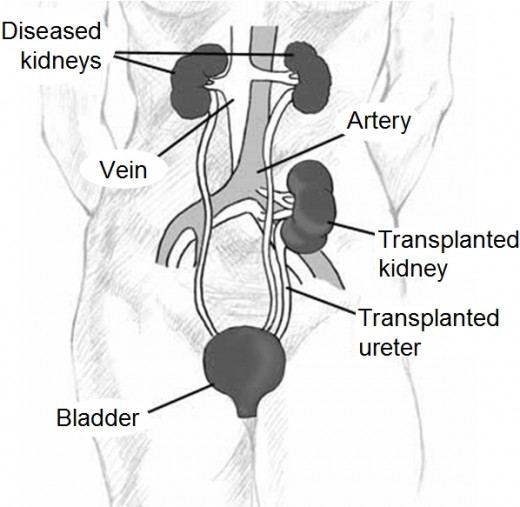
Kidney Transplant Contributing Conditions
People receiving transplants or wishing to receive them can often have one or several of these conditions in addition to the underlying reason that they need a functioning kidney:
- hemolytic uremic syndrome
- diabetes
- burn victims
- amyloidosis
- liver disease and/or liver failure
- high cholesterol
- kidney disease such as glomerular nephrosclerosis
- recurrent bladder or kidney infections
- stone disease of the kidneys
- heart and cardiovascular disease
- high blood pressure
- certain types of injuries traumatizing the kidney
- malignancies involving the kidney
- kidney damage as a result of medication usage
- hemodialysis is usually the first line of treatment, almost all kidney transplant patients having received dialysis before transplantation
- deceased donor transplants (cadaveric transplants) are felt to be not as effective as living-donor transplants
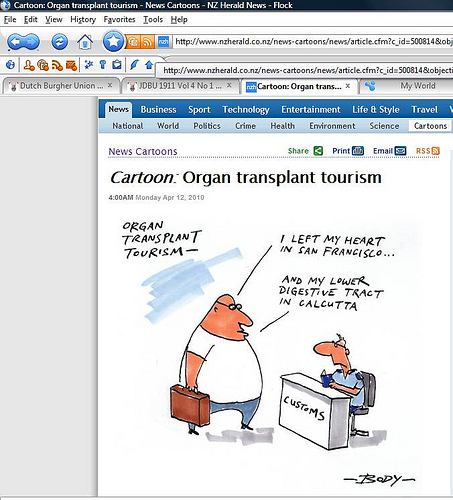
Prep to Organ Transplant
As with any surgery, there are certain criteria that must be met but this is especially true with transplantation of organs or tissue. The patient must undergo a thorough diagnostic workup and age-appropriate screening examinations before being considered for transplant.
For instance, at the very least, colonoscopy, mammogram and Pap smear would be required in a potential female recipient to be considered. The testing is necessary to confirm the at least 5-year predicted survival rate outside the bounds of renal disease.
Some of the diagnostics and preparations one might undergo:
- blood work
- urine studies
- x-ray studies to include CAT scans and ultrasounds
- blood typing
- other ancillary tests for transplant match
- dental exam - to rule out infection
- evaluation of smoking and alcohol history
- psychological profiling
- social worker interview
- dietary interview
- screening tests up to date such as mammogram, colonoscopy, etc
- any other tests deemed necessary to ensure that the transplant recipient is in the appropriate state of health to receive a transplant

Transplantation Protocol
Once it has been determined that a patient needs a renal transplant, he or she is entered into the Organ Procurement and Transplantation Network (OPTN). A patient may be on several regional transplant lists at the same time although an entire examination and application is required for each one individually. Unlike other organ procurement, kidneys are assigned the best match regardless of regional preference.
Having passed all screening exams and having met preoperative criteria, if a living donor transplant is being performed, the patient and the donor will most likely be operated on at the same time in adjoining rooms. Two teams of surgeons perform the operation, removing the kidney from the donor (nephrectomy) and preparing the patient to receive the extracted kidney.
If a patient is on an organ transplant list, time is of the essence if and when a kidney becomes available. Once at the hospital, antibody tests are run and if negative, the recipient proceeds to surgery with the donated kidney.
Kidney transplants generally take about three or four hours to perform. The ureter from the new kidney is attached to the patient's bladder and can begin making urine in as little as minutes or can take up to a few weeks. The new kidney artery and vein are attached to the patient's existing artery and vein establishing immediate blood flow to the organ.
Most patients stay in the hospital several days to a week after surgery to monitor blood levels and check for signs of infection or rejection. Unlike tissue composite graft transplantations, an internal organ is harder to evaluate as the changes are not obvious to the naked eye. Thus, monitoring tests are the only true measure of whether the organ is working or not working. Urine production is also an indicator of how the body is accepting its new organ.
How It's Done
Worst Case Scenario
Complications following transplant surgery are always a concern. Here are just some of the most common problems that can occur after surgery:
- infection
- incompatible blood type of organ transplanted
- acute rejection (in first 3 months)
- chronic rejection (at 6 months out and longer)
- allergic and/or systemic reactions to medications
- worsening of heart or vascular conditions
- development of cancers related to immunosuppressant therapy (especially skin, breast and prostate with a 1000-fold potential increase in lymphomas)
- long term medication side effects which can result in other organ failure or systemic conditions
- vulnerability to ultraviolet light
- need for immunizations and vaccines to prevent illness as at higher risk due to lowered immunity status

Giving Life Through Donation
There are many remarkable folks out there who selflessly donate kidneys every day. They are heroes that give someone a new chance at life.
Checking the organ donor box on your driver's license can be a heroic act as well. Most families in times of crisis do not want to think about these kinds of painful issues and having the foresight to make your wishes known before tragedy strikes is an effortless way to assure your wishes are carried out. Donating organs is giving life and a second chance to people of all ages and ethnicities. This author calls it the ultimate in recycling. Do talk to your family about your wishes for organ donation before the time comes.
Did you know? The first successful adult kidney transplant was performed in 1954. We've come a long way and the future is bright for transplants of all kinds.






